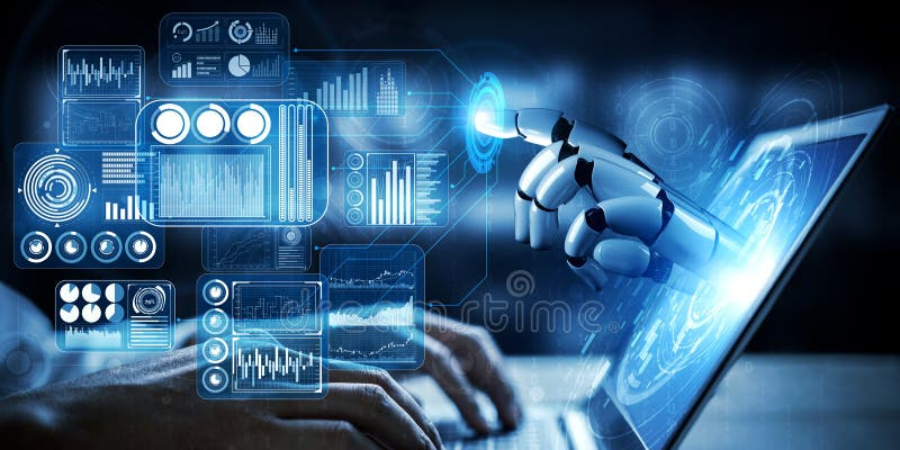

Artificial Intelligence (AI) refers to the simulation of human intelligence in machines that are programmed to think, learn, and problem-solve. Here are key aspects of AI:
Definition:
Machine Learning:
The impact of AI is vast and can be seen across various industries, from healthcare and finance to transportation and retail. AI can improve efficiency, reduce costs, enhance accuracy, and provide personalized experiences to customers.
The various industries that uses AI is follow;
1) Healthcare:
* AI is revolutionizing diagnostics and treatment plans.
* Predictive analytics enhance patient care and reduce medical errors.
* Robotics assist in surgeries and automate routine tasks.
2) Finance:
* AI algorithms improve fraud detection and risk management.
* Chatbots provide personalized customer service and financial advice.
* Automated trading systems use AI for market analysis.
3) Retail:
* AI-driven recommendation engines enhance customer shopping experiences.
* Inventory management is optimized through predictive analytics.
* Chatbots and virtual assistants improve customer support.
4) Manufacturing:
* AI-driven automation improves efficiency in production processes.
* Predictive maintenance minimizes downtime for machinery.
* Quality control benefits from AI image recognition.
5) Education:
* Personalized learning experiences tailored to individual student needs.
* AI assists in grading, automating administrative tasks for educators.
* Virtual tutors and educational chatbots provide additional support.
6) Automotive:
* AI plays a crucial role in the development of autonomous vehicles.
* Predictive maintenance reduces the likelihood of breakdowns.
* AI enhances in-car infotainment and navigation systems.
7) Marketing:
* AI-driven analytics improve targeted advertising campaigns.
* Chatbots and virtual assistants engage with customers on websites.
* Predictive analytics help in forecasting market trends.
8) Agriculture:
* Precision farming uses AI for crop monitoring and optimization.
* Drones equipped with AI analyze crop health and detect diseases.
* AI enhances decision-making in resource allocation.
9) Energy:
* AI optimizes energy consumption and grid management.
* Predictive analytics improve equipment maintenance in the energy sector.
* AI contributes to the development of smart grids.
10) Telecommunications:
* AI enhances network security and fraud detection.
* Chatbots provide customer support for common queries.
* Predictive maintenance ensures network reliability.
11) Insurance
12)Human resources
The integration of AI into various industries is transforming operations, improving efficiency, and driving innovation. As AI continues to evolve, its impact on these sectors is likely to expand, offering new possibilities and addressing complex challenges.
